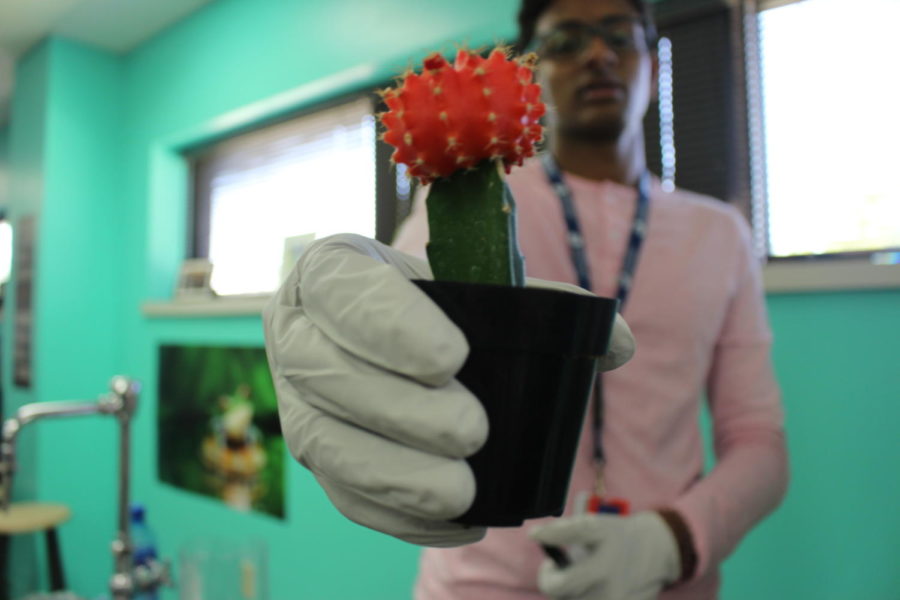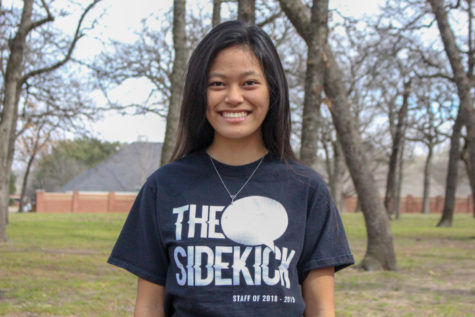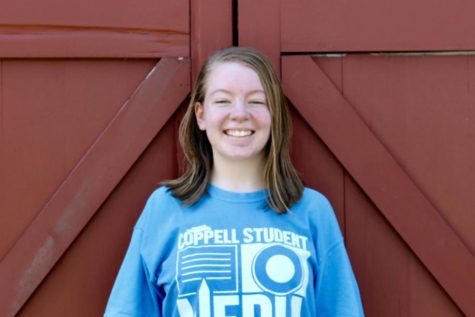On the Spot: IB Biology I classes sustaining life in new mesocosm project (with video)
CHS junior Tarun Rayapati works on a terrestrial environment in IB I Biology with Rebecca Wheatley in room E208 on Tuesday. The mesocosm project focuses on building either an aquatic or terrestrial environment using collective materials that can sustain itself for four weeks.
August 28, 2018
Today in Rebecca Wheatley’s IB Biology I classroom, lively chatter and energy surround the room as students shuffle soil in containers and arrange various cacti, seeds, and leaves all in preparation for their mesocosm project.
With the objective to sustain itself for four weeks, students must create a mesocosm, or a small terrestrial or aquatic area designed as an ecological experiment with a partner. The mesocosm must be entirely closed off, preventing any form of oxygen or water to escape.
Although the premises of the project may seem intimidating, students are eager to take on the challenge of sustaining life as it is a more exciting alternative to the usual paper and pencil approach of learning.
“It’s just fun to grow something yourself,” junior Sreeya Reddy said. “This is much more hands on.”
A project required for the course, creation of a mesocosm combines the application of all accumulated knowledge and skill, such as biogeochemical cycles, from past subjects.
Students are given freedom to choose materials or organisms from any location for this hands-on project, besides one rule that vertebrates not be used for the mesocosm due to IB policy.
“We have two rolly pollies, two minnows and worms,” junior Shreya Kottapalli said. “Every little thing you really have to think about.”
Although the mesocosm project presents the opportunity for creative and engaging presentations, the focus of the grading criteria lies on its ability to survive independently.
Observations and data, such as soil depletion levels and status of species, will be collected every other day into a respective website that doubles as a documentation of progress and a lab report.
The experimental nature of the project allows students to learn their mistakes and adjust their materials according for survival even when faced with failure.
“The idea is simply science,” Wheatley said. “If they fail, then they do it again.”
A newly introduced project under IB, Wheatley has full confidence that the mesocosm project will have success as a long term project in the classroom.
“It’s so awesome to just see the different ideas,” Wheatley said. “I never quite know what [the students] will come up with.”











